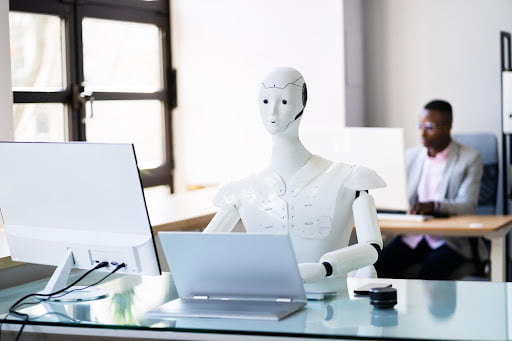
Whether you realize it or not, artificial intelligence (AI) is revolutionizing various aspects of our lives, and the job market is no exception. This rapid advancement in technology has both positive and negative implications for workers in practically every industry. While some fear that AI will make human workers obsolete, we believe that it will create new opportunities and improve the overall productivity and efficiency of the job market. So, let’s explore the impact of AI on the job market in a friendly, informative manner.
AI: A Game Changer for Productivity
Artificial intelligence has the potential to greatly enhance productivity in countless industries. By automating repetitive and mundane tasks, AI enables workers to focus on more complex and creative endeavors. For example, AI-powered chatbots can efficiently handle customer inquiries, freeing up human customer service representatives to solve more pressing issues. Moreover, AI algorithms can quickly analyze and process large datasets, leading to more accurate data-driven decision-making.
New Opportunities, Not Obsolescence
Contrary to the fear of job loss, AI is likely to create new opportunities for workers. As technology advances, new roles centered around AI development, implementation, and maintenance will emerge. Companies will require data scientists, machine learning engineers, and AI ethicists to ensure the responsible and ethical use of AI. Additionally, AI will open up avenues for workers to complement and enhance their skill sets through retraining and upskilling programs offered by educational institutions and employers. By embracing these opportunities, individuals can adapt to the changing job market landscape.
Supporting Small Businesses
AI can level the playing field for small businesses and startups, enabling them to compete with larger players. AI-powered tools, such as virtual assistants and automated inventory management systems, reduce costs and improve efficiency. This makes it easier for small businesses to optimize their operations, enhance customer service, and gain a competitive edge. As a result, the job market can witness the rise of innovative startups, creating new job opportunities for workers and fostering healthy competition.
Human Touch and Collaboration
While AI has its merits, there are certain aspects where human skills are invaluable. AI lacks emotional and interpersonal capabilities, making human workers essential for jobs requiring empathy, creativity, and critical thinking. Industries such as healthcare, education, and the arts rely heavily on human interaction, where trust and emotional intelligence play pivotal roles. Collaborative endeavors also demand human collaboration, as teams collectively bring diverse perspectives, experiences, and creativity to the table. By harnessing the potential of AI to complement human skills, we can create a more harmonious job market that values both technological advancements and human contributions.
In conclusion, the impact of artificial intelligence on the job market is vast and multifaceted. While it may cause disruptions and uncertainties, embracing AI can lead to new opportunities, increased productivity, and efficient solutions. It is crucial for workers, businesses, and policymakers to adapt to this evolving landscape by investing in education and training programs. By welcoming AI and redefining our roles in the job market, we can create a future where human expertise and AI technologies intertwine, benefiting us all.


